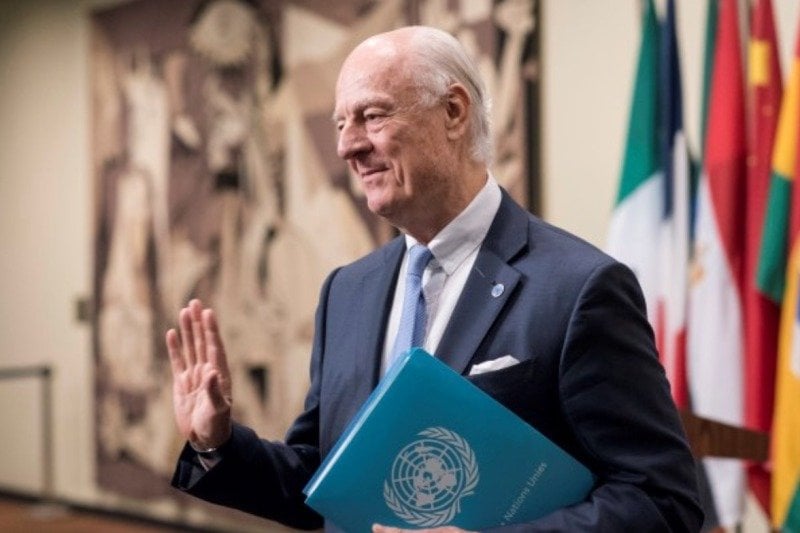
A plan to divide Morocco’s Sahara region, allegedly proposed by UN representative Staffan de Mistura in October 2024, keeps resurfacing periodically, sparking queries about its underlying reasons and possible connections with the Algerian administration. Even though de Mistura has officially refuted his direct role in this matter, doubts still linger.
The proposal, which was decisively refused by both Morocco and the Polisario Front, has not garnered any response from Algeria so far. This situation has reignited debates similar to those surrounding an analogous initiative put forth by ex-UN representative James Baker back in 2002. Previously, according to UN documents, Algeria had expressed backing for this concept.
The situation escalated with comments from Algerian politician Rachid Nekkaz, who was recently arrested in Morocco. He sparked additional discussion by advocating for "the division of the Sahara between Morocco and Algeria," asserting that control over this area ought to be "jointly managed" by both countries.
These comments, expressed in Marrakesh, sparked renewed debates regarding Algeria's involvement in the Sahara conflict. Morocco's UN representative, Omar Hilale, characterized de Mistura's suggestion as "an exclusively Algerian endeavor," asserting that Algeria aims for an outlet to the Atlantic via this proposition.
Observations suggest a potential orchestrated approach by Algeria, intensifying doubts that the partition proposal coincides with an unannounced yet strategic Algerian objective aimed at undermining Morocco’s autonomy plan. This initiative for greater self-governance has garnered considerable global backing as a practical resolution to this long-standing conflict.
Political and security analyst Mohamed Chiker suggested that Nekkaz’s remarks were “not spontaneous but rather part of an Algerian agenda aimed at creating a media stir that could be politically leveraged.” He noted that Nekkaz’s decision to travel from Paris to Marrakech, a globally recognized tourist destination, to make his provocative claims about Morocco’s presence in its southern territories was likely an attempt to provoke a reaction from Moroccan authorities.
Chiker contended that this reaction might have been capitalized upon by Algeria, especially as the upcoming UN Security Council meeting in April 2025 approaches, when de Mistura will likely present his most recent update. Nonetheless, Chiker praised the restrained approach taken by Moroccan officials, which prevented Algeria from using the incident to influence the scenario and reignite talks about division—a longstanding aim since Bouteflika’s tenure as president.
Abdelalaï Benlyaz, a political science professor at Mohammed V University in Rabat, concurred that remarks made by individuals such as Nekkaz—a previous contender for the presidency of Algeria—are "unlikely to occur without being linked to broader political circumstances."
Benlyaz noted that such rhetoric reflects Algeria’s entrenched political and diplomatic stance against Morocco. He further linked Nekkaz’s remarks to the broader historical trend of Algerian attempts to influence UN envoys, from James Baker to de Mistura, in favor of partition.
As Morocco’s autonomy proposal gains momentum on the international stage, Benlyaz suggested that Algeria is seeking to resuscitate partition as a counter-strategy. He emphasized that, facing growing diplomatic isolation, Algeria now appears to rely on indirect messaging, rather than formal engagement in UN-led negotiations, to push its agenda.
Ultimately, analysts argue that Algeria’s approach aims to reinsert itself into the Sahara debate through unofficial channels, rather than through direct participation in UN-backed roundtable discussions to resolve the long-standing regional dispute.
The post De Mistura's plan for dividing the Sahara has ignited debate regarding Algeria's involvement. appeared first on Pawonation.comEnglish - Morocco News .


Post a Comment